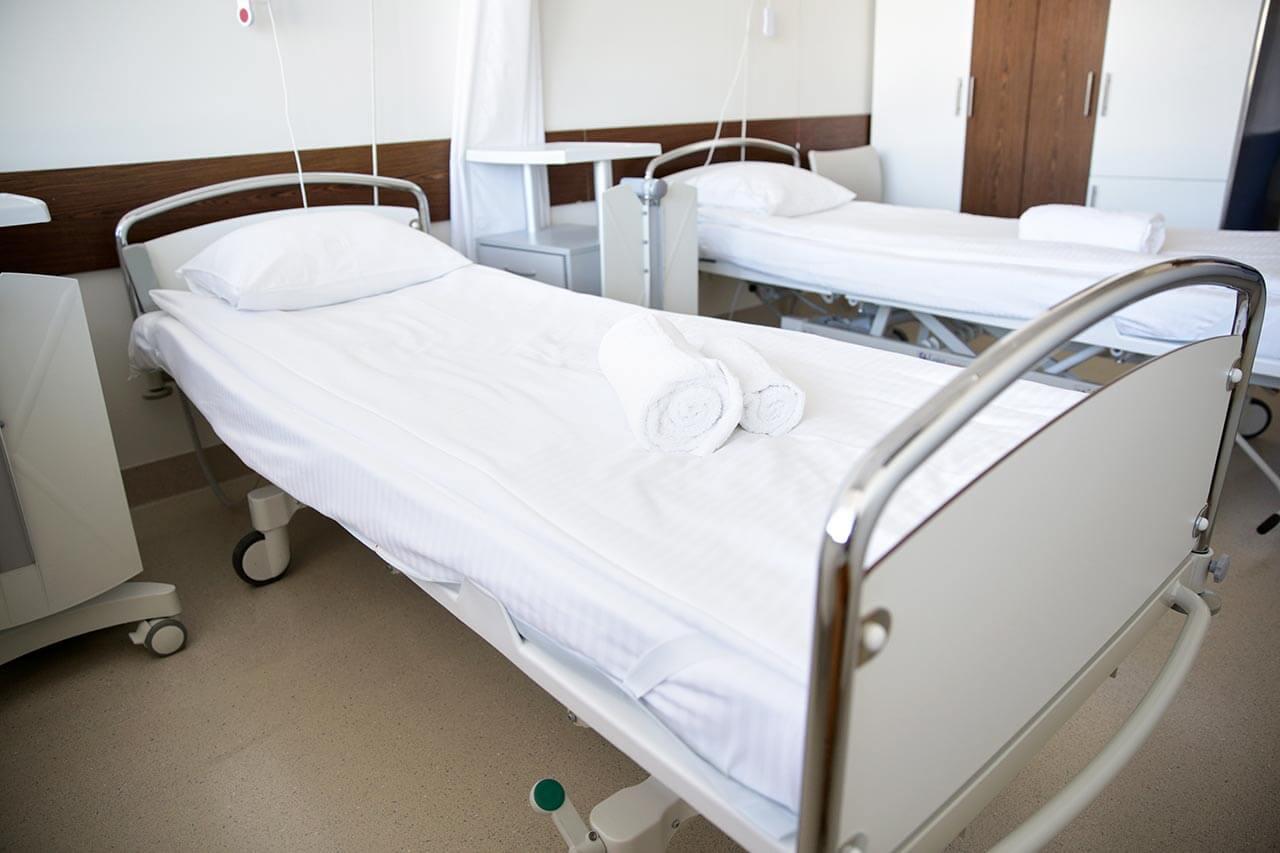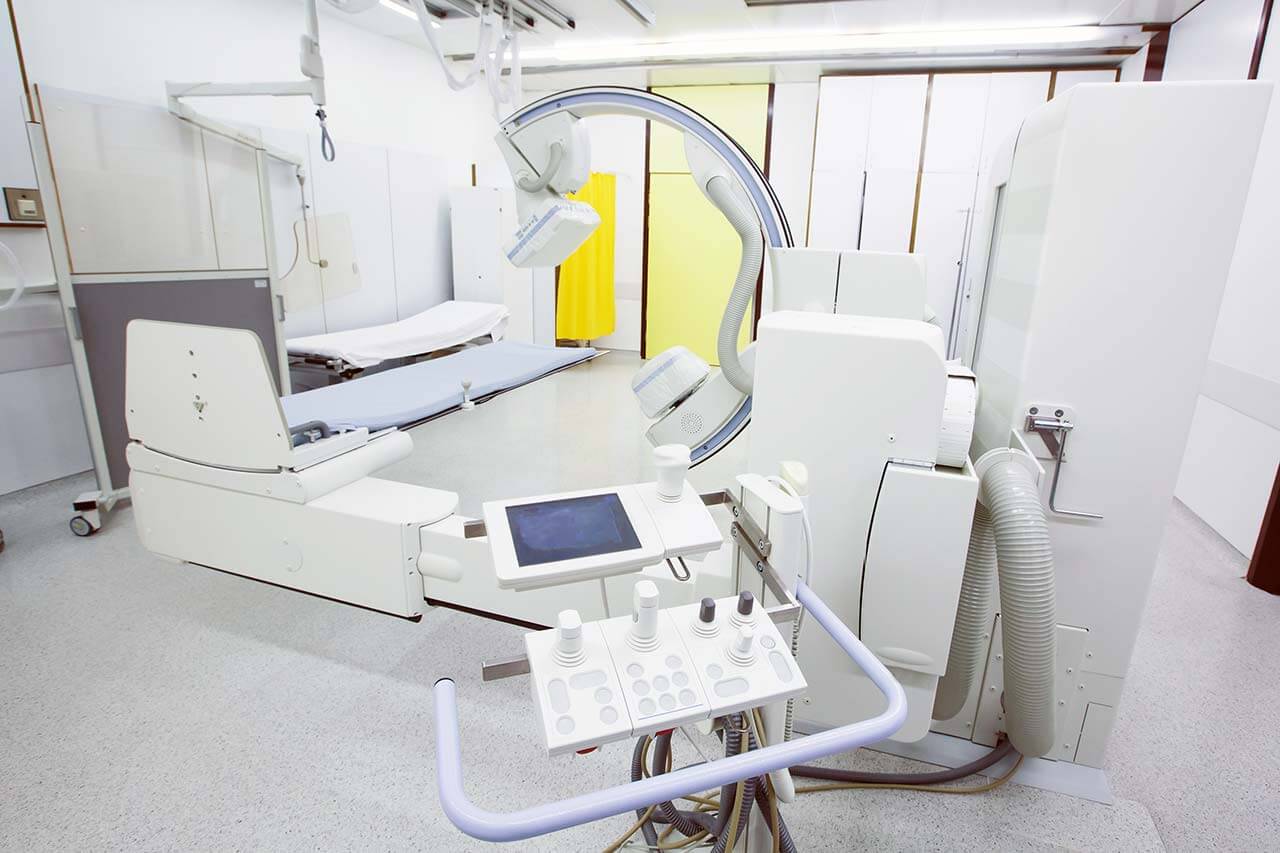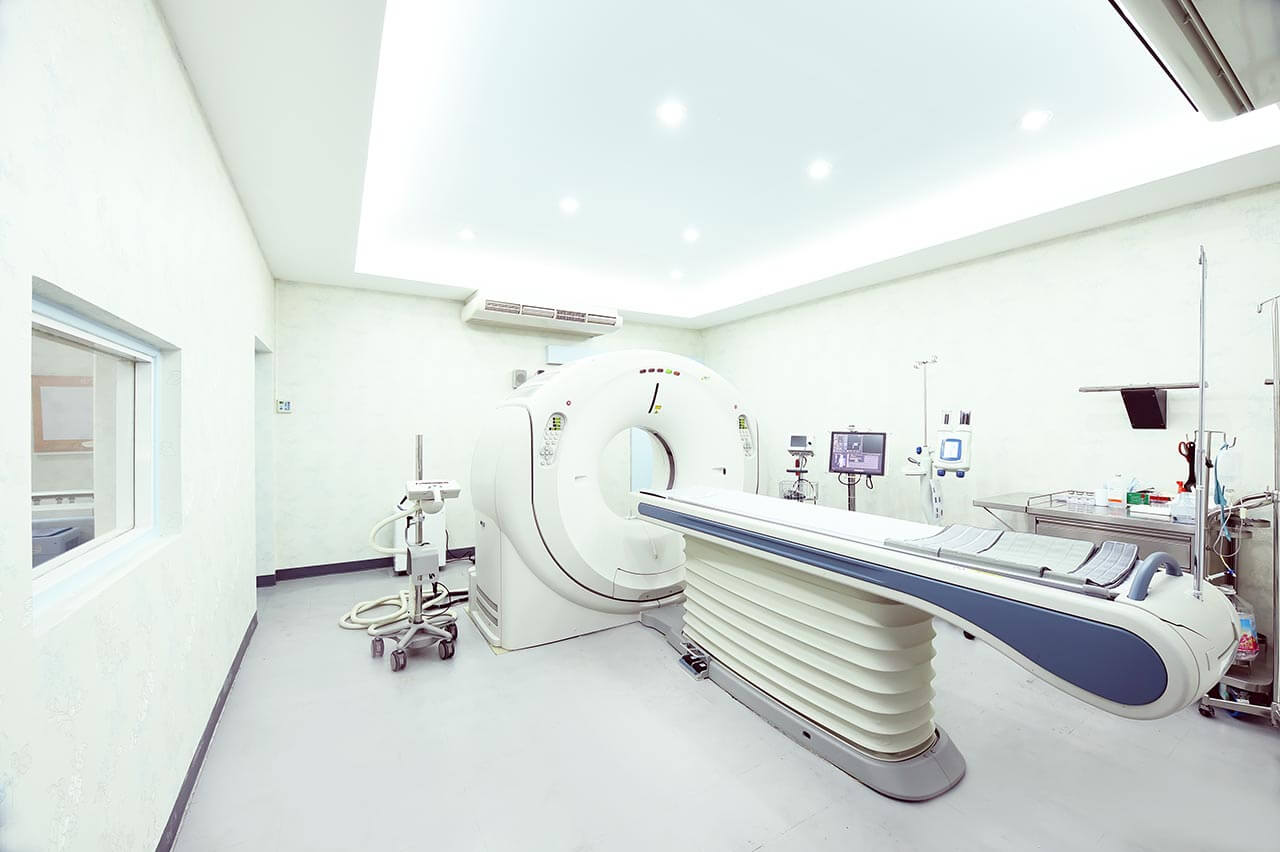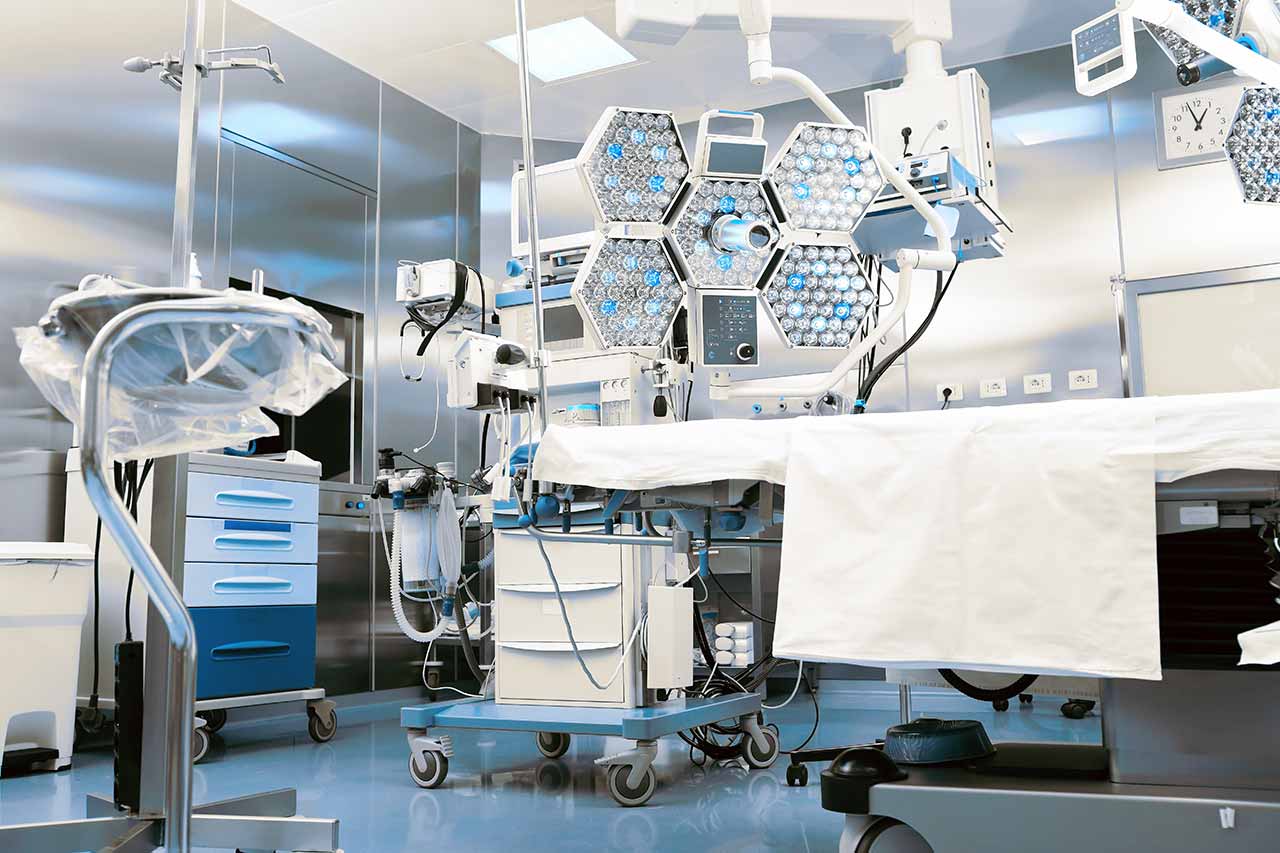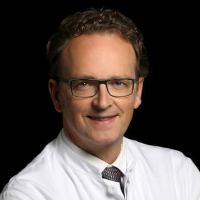
The program includes:
- Initial presentation in the clinic
- clinical history taking
- review of medical records
- physical examination
- laboratory tests:
- complete blood count
- biochemical analysis of blood
- thyroid function test (TSH-basal, fT3, fT4)
- mineral metabolism analysis (Na, K, Ca, Mg)
- lipid metabolism (HDL/LDL, cholesterol, triglycerides,
Lip(a), homocysteine) - iron content (ferritin, iron)
- blood coagulation analysis (aPTT, PT, INR)
- metabolic status (uric acid, total glucose, HbA1c)
- inflammatory parameters (CRP, ESR)
- cardiovascular disease risk markers
- lung function test (Spirometry)
- resting and exercise ECG
- Holter monitoring (24h)
- color doppler echocardiography
- transesophageal echocardiography (tee)
- color doppler sonography of cerebral vessels
- heart catheterization
- preparation according to preoperative standard
- coronary artery bypass surgery (CABG) and valve replacement
- symptomatic treatment
- control examinations
- the cost of essential medicines and materials
- nursing services
- full hospital accommodation
- explanation of future recommendations
- written statement
Required documents
- Medical records
- ECG (if available)
- Echocardiography (if available)
Service
You may also book:
 BookingHealth Price from:
BookingHealth Price from:
About the department
According to the Focus magazine, the Department of Cardiothoracic Surgery at the University Hospital Essen ranks among the top German medical facilities specializing in the surgical treatment of diseases of the cardiovascular system and lung cancer!
The department offers the full range of surgical services for the treatment of diseases of the cardiovascular system, respiratory tract, including heart and lung transplantation, artificial heart implantation. The therapeutic options include aortic surgery, coronary artery bypass grafting, transplantation surgery, surgical treatment of heart rhythm disorders (arrhythmias), minimally invasive surgery, surgical treatment of the heart valves, including reconstructive interventions. All operations are performed using state-of-the-art technology and in accordance with the current recommendations of professional societies. The department is headed by Prof. Dr. med. Markus Kamler.
The department began its work in 1961, therefore it has rich traditions and it is a pioneer in many fields, for example, the first pacemaker was implanted here in 1962, while in 1968 there was performed the first operation using a heart-lung machine. The department has three operating rooms equipped with the cutting-edge technology, which allows to provide the highest level of security for the patients. Also the department operates an ultramodern hybrid operating room, which serves for the performance of combined catheter and open surgical procedures. The department's surgeons carry out more than 2,000 operations every year, 1,300 of which are performed using a heart-lung machine.
The service range of the department includes:
- Aortic surgery (in thoracic aortic aneurysm)
- Implantation of a special prosthetic stent (a new, sparing treatment method)
- Transplantation surgery
- Heart transplantation
- Lung transplantation (unilateral, bilateral one)
- Combined heart and lung transplantation
- Artificial heart implantation (auxiliary system/total replacement)
- Coronary artery bypass grafting
- Bypass grafting (arterial revascularization)
- Off-pump coronary artery bypass surgery
- Heart valve surgery (reconstruction with valve preservation and replacement)
- Carotid artery surgery (aneurysm and dissection)
- Combined interventions
- Comprehensive heart surgery (aortic arch surgery, heart valve damage, pulmonary embolism, revision surgery)
- Surgical treatment of arrhythmia
- Pacemaker implantation
- Defibrillator implantation
- Triple chamber stimulation
- Alternative Maze procedure in atrial fibrillation
- Minimally invasive surgery
- Minimally invasive interventions on heart valves
- Catheter aortic valve surgery (transapical aortic valve replacement)
- Endoscopic cardiac surgery (endoscopic mitral valve surgery)
- Minimally invasive coronary artery bypass grafting
- Heart valve surgery
- Anticoagulation therapy
- Endoscopic heart valve surgery
- Aortic valve reconstruction
- Ozaki procedure (new aortic valve reconstruction using a pericardial flap)
- Other surgical treatments
Curriculum vitae
Higher Education and Postgraduate Training
- 1986 - 1992 Medical studies, Ruprecht Karl University of Heidelberg.
- 1992 Thesis defense, Department of Surgery, University Hospital Heidelberg.
- 2005 Habilitation, Cardiac Surgery, University Hospital Essen.
Professional Career
- 1993 - 01.03.1994 Fellowship, Alexander von Humboldt Foundation, Bonn, Postdoctoral Fellow at the Institute of Biomedical Engineering, University of California, San Diego, USA.
- 01.04.1994 - 28.02.1999 Research and Clinical Fellow, Department of Cardiac Surgery, Ruprecht Karl University of Heidelberg.
- 01.03.2001 Consultant Physician, Department of Cardiothoracic Surgery and Transplant Surgery, University Hospital Essen.
- 2005 - 2010 Deputy Head, Department of Cardiothoracic Surgery, University Hospital Essen.
Awards and Honors
- Young Investigator Award, European Association for Cardiothoracic Surgery, London.
- TERUMO Honorable Award.
- Microcirculation Poster Award, Faculty of Medicine, University of Essen.
- Microcirculation Poster Award, European Society for Clinical Hemorheology and Microcirculation (ESCHM).
Memberships in Professional Societies
- German Society for Thoracic and Cardiovascular Surgery.
- German Cardiac Society.
- European Association for Cardio-Thoracic Surgery.
- International Society for Heart and Lung Transplantation.
Photo of the doctor: (c) Universitätsklinikum Essen
About hospital
According to the authoritative Focus magazine the University Hospital Essen ranks among the top German hospitals!
With 27 specialized departments and 24 institutes, the hospital in Germany is a maximum care medical facility. The hospital has 1,300 beds for inpatient treatment. A highly qualified medical team of more than 6,000 employees takes care of the health of patients. All the specialists give preference to an interdisciplinary medical care, which guarantees a comprehensive treatment taking into account the smallest aspects of a particular pathology. The hospital annually diagnoses and treats more than 50,000 inpatients and about 195,000 outpatients, which testifies to the prestige of the medical institution and the highest quality of treatment in Germany.
The hospital presents all the modern medical fields. Nevertheless, special attention should be given to the following major fields of specialization as oncology, transplantology and cardiology, as well as research activities in the field of immunology, infectology and translational examinations of pathologies of the nervous system and behavioral disorders.
Established on the basis of the standard American model of Comprehensive Cancer Centers, the West German Cancer Center (WTZ) in Essen was recognized as the best medical facility of this kind in Germany in 2009. Nowadays, the center holds leading positions both on the national and international medical markets. The basis of its successful clinical practice is the use of very latest treatment methods and an interdisciplinary approach to each clinical case. The West German Organ Transplant Centre (WZO) is also recognized as one of the best in the country and one of the few in Germany, which specializes in the transplantation of all vital organs, such as kidney, liver, pancreas, heart and lungs. Special attention is paid to kidney and liver transplantation.
The hospital in Germany is proud of its high-tech medical equipment, experienced and competent staff, productive research activities, which allow to guarantee the accurate diagnostics and effective treatment, including rare and very complex clinical cases for every patient. Consequently, the hospital is considered a perfect embodiment of high-quality treatment in Germany.
Photo: (c) depositphotos
Accommodation in hospital
Patients rooms
The patients of the University Hospital Essen live in comfortable rooms designed in bright colors. The standard room furnishing includes an automatically adjustable bed, a bedside table, a personal wardrobe, a personal call button with a built-in light panel, a telephone, a TV and a radio. The Internet access is available at an additional cost.
Meals and Menus
The patients of the hospital are offered a daily choice of three menus. The patients are also offered alternative types of menus, if their religion requires the exclusion of certain foods. If you follow a certain diet or suffer from food intolerance, you will be provided with a menu of your choice by discussing it with your attending physician in advance. The hospital also houses a bistro and a cafe, where one can have a tasty snack, enjoy hot and cold drinks.
Further details
Standard rooms include:
Accompanying person
There are a few types of hotels for the accompanying persons, who want to stay near the hospital. The hotel of the Essen University Hospital offers apartments on the first floor of the nursing high-rise building. The DRK nursing also offers single and double rooms.
The hotel in Grugapark is available for the parents, whose children stay in the hospital. The parents of children with cancer can also stay here. Moreover, The Department of Pediatrics offers its rooms for parents.
